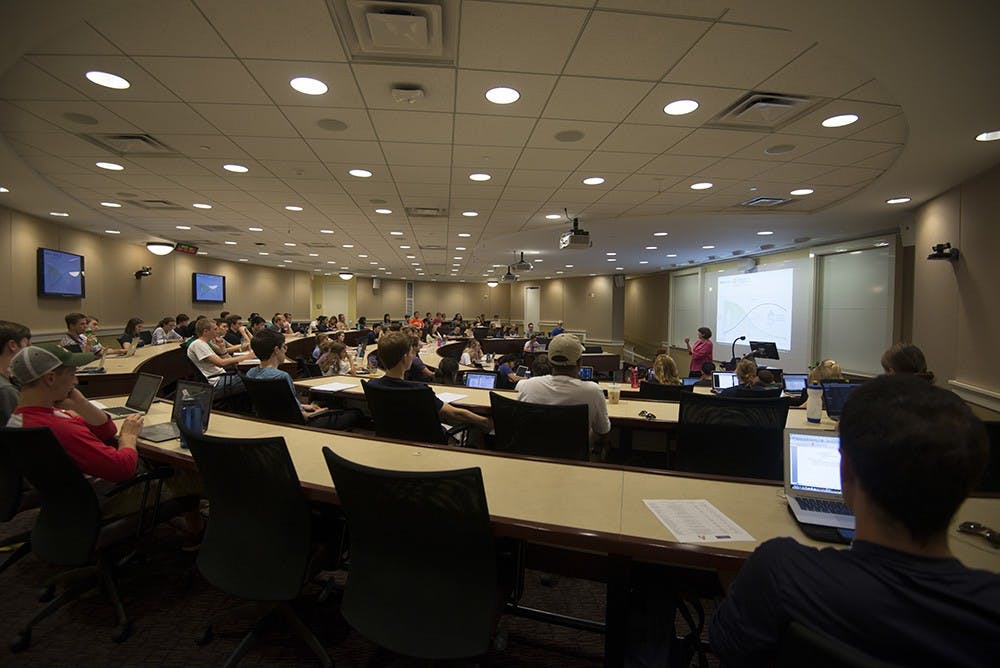In the McIntire School of Commerce’s personal finance course, fourth and fifth-year non-Commerce majors learn financial and budgeting skills to assist them in life after graduation. While most courses offered at the University teach informational skills applicable to students’ careers, personal finance emphasizes practical skills used in everyday life.
The McIntire School introduced the course after a generous donation was given to the school in 1949.
“Mr. Hardaway, who is a McIntire alum, gave this gift with the idea that it would be a personal finance course,” adjunct Prof. Dorothy Kelly said. “The McIntire school offers it to the other [non-Commerce] students because they haven’t taken finance or any of the other courses offered in the McIntire school.”
According to the syllabus, the class “will provide the basics of personal finance and the fundamental principles to achieving personal financial well-being.”
Fourth-year College student John Moore, who is currently enrolled in the class, said the class teaches skills essential for financial stability in the future.
“Small decisions that we make now have big impacts on the future,” Moore said. “The thing is, we’ve worked so hard in school and in the jobs that we have and are going to have, that it’s really the least we can do for ourselves to learn how to take care of the rewards.”
The class uses real-life scenarios to stress the importance of maintaining a budget and considering the impact of small changes on one’s financial plan.
Starting to think about finance and creating a budget as early as possible are crucial to economic stability, Kelly said.
“The big thing about personal finance is the sooner you start saving, the sooner you start investing, the better off you will be economically,” Kelly said. “Time is your biggest advantage.”
Although the information covered by the course is not hard to understand, the class highlights concepts students might not otherwise consider, Moore said. The material in personal finance asks students to contemplate and evaluate their financial decisions and prepare for the future.
“[Personal finance is] something that a lot of us simply aren’t aware of until it’s introduced to us,” Moore said. “I think that’s very attractive to students when they can look at something and see very easily why it’s important to learn and how we can use it in real life.”
One of the course’s major goals is to encourage greater awareness and understanding among students who have not previously taken finance-based courses. Through the class, Kelly hopes these students will consider how to best make use of money at the youngest age possible.
“Being young and starting when you’re young gives you a huge advantage,” Kelly said. “We want to make sure that students who didn’t take finance courses or accounting courses or economic courses understand the importance of starting saving for their goals and emergencies — for short-term goals, long-term goals and ultimately their retirement.”







